While talking and working, the young man quickly helped Mrs. Hang open the package. Immediately, her emotions exploded. In her hand was a notebook with a blue nylon cover, the notebook that more than 50 years ago, the 10th grade girl had given to her boyfriend before he left for the army.
***
It was the early days of 1972. Hot news from the battlefield was pouring in, disturbing the peaceful atmosphere of the lovely town on the Thuong River. It seemed like we were preparing for a big attack, creating momentum for an attack on the southern battlefield, and also taking the initiative at the negotiating table in Paris. For the young people in their final year of high school, this was a unique opportunity to contribute to the country's seemingly imminent victory. Many boys in class 10G could not sit still, and wrote applications to volunteer for military service, including class monitor Dung.
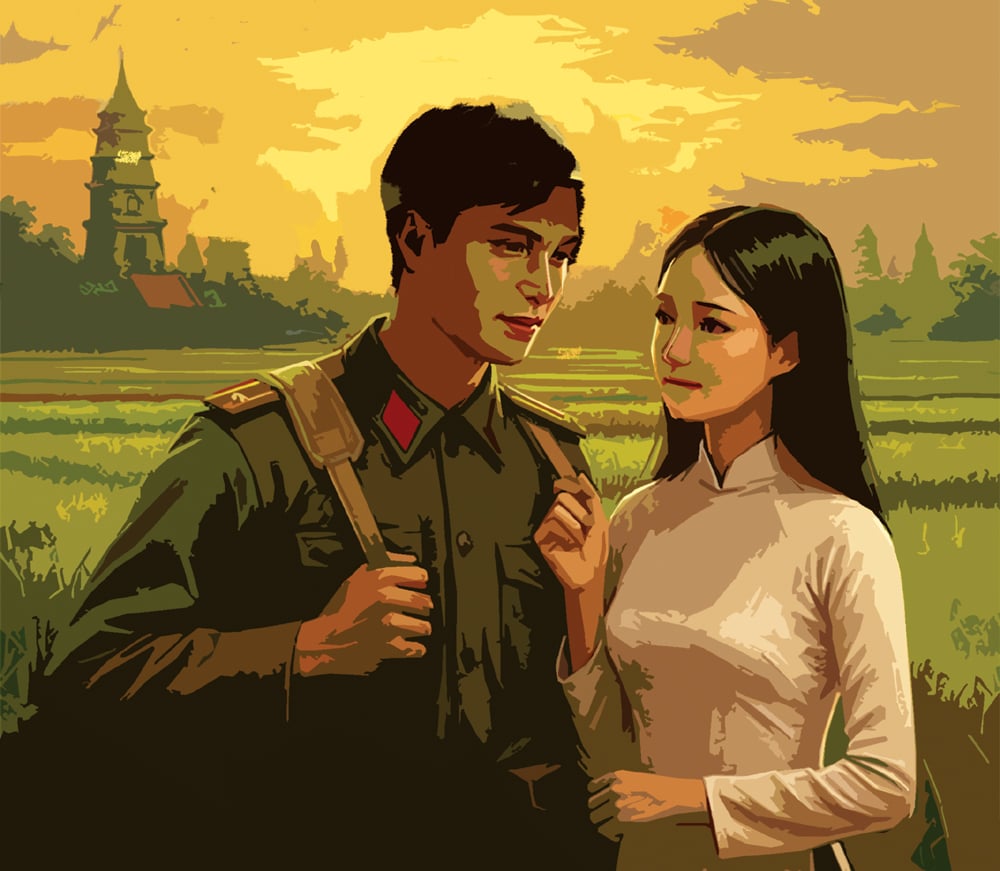 |
Illustration: Sage. |
Hang, Dung’s best friend, was the first person in the class he shared this decision with. That was the day the two of them rode home together after dredging the school shelter. After several years of stopping the bombing of the North from the 18th parallel, the Thunder Gods and Ghosts of the US Air Force roared again in the sky of the North. When they said goodbye under the bamboo grove on the banks of the Thuong River, Dung said:
- I have volunteered to join the army. I will probably leave soon...
- Oh, if you go, who will be the class monitor?
Dung burst out laughing at her friend's question. The question was a bit funny, but it revealed the fact that in the minds of Hang and most of her classmates, Dung being the class monitor was a natural thing. Since 8th grade, class G has always trusted Dung to be the class monitor, because he is a good student, friendly, and takes on the work of the class and the school.
I don't understand why, but the two of them are very close even though their family circumstances are very different. Hang's family is well-off, her father is a leader of an important department in the Ministry of Agriculture, Hang's mother is a teacher. Dung's parents are both railway workers. Her father is a train driver, her mother is a ticket seller at the town station. Hang's family has only two siblings, Hang is the youngest so she is spoiled. Meanwhile, Dung is the eldest of four siblings, three boys and one girl. Both parents are workers, conditions during the subsidy period were difficult, so after school hours, Dung did all kinds of jobs to help his parents. Since he was in middle school, every summer vacation, Dung would make a pot of hot water and go to the train station to catch the trains. At night, he would chop duckweed and cook bran to feed the pigs. Just like that, Dung was able to earn money to buy books and school supplies for himself and his siblings. What made his classmates, including Hang, love their class president was that although it was hard, Dung was very good at studying, especially in Literature.
In the early days of Dung’s enlistment, Hang still saw the image of her slim boyfriend, sitting attentively by the bookshelf in her living room. At first, Dung was attracted by that bookshelf and overcame his hesitation about the distance between them. That was what Dung later confessed in letters sent home from the distant battlefield of Quang Tri. Easy to approach, good at studying, good at singing…, Dung was loved by many girls in his class. The whole class, the whole school remembered Dung’s quan ho singing voice during parties and performances. Now all of that is a memory…
Receiving the keepsake of her close friend years ago made Ms. Hang extremely emotional. For her, that keepsake brought back many memories of her school days and her first love. That day was the day before Dung joined the army. Wanting to have some private time, Hang chose the time when families gathered to have dinner, when there would be few visitors. Indeed, Hang arrived when Dung was having a farewell meal with his parents and siblings. Hang only had time to give Dung a notebook with a sky-blue plastic cover and a few stamps, gently held his hand and left. The dedication expressed the wishes of loved ones when the boys set off for the place of arrows and bullets: "Dung, have a safe journey. Remember to write to Hang. Address...".
At the age of 18, if there was no war, the threshold of life with university lecture halls, a vibrant life on construction sites, factories... and even the first feelings of life would be opening up for Dung and his peers. But that was the time when the resistance war against the US to save the country entered a fierce phase. Right from the beginning of 1972, tens of thousands of young people in the North, including 10th graders who had just finished the first semester of their last year of high school, had to join the army. Due to the requirements of the battlefield, localities had to "borrow" soldiers, meaning that they had to mobilize to join the army the entire class of young people who would have had the opportunity to complete their high school program or at least be able to celebrate the Year of the Rat with their families and relatives that year.
***
Dung said goodbye to the 10G collective, goodbye to the town's high school on days like that. After the new soldier training course, he followed the bridge engineer unit to Vinh Linh (Quang Tri). Because of the urgent situation, the new soldiers were not given leave before entering the battlefield as usual. Hang learned that Dung was going to the battlefield through a hastily written letter that he dropped on the road when his car passed through the town on a spring night, the envelope still covered in mud. The letters that followed were sent from Vinh Linh. In the letter, Dung told Hang about Cua Tung, where the Ben Hai River flows into the sea, where his unit assembled ferries with a load capacity of tens of tons to carry tanks and artillery across the river to liberate Quang Tri.
With the romantic soul of a good student, he described the smooth white sand with gentle caressing waves without mentioning the difficulties and dangers that he and his teammates were facing. One thing that made Hang wonder, even thinking of blaming her friend, was that in the letters, he did not officially express his feelings for her, even though she had gone ahead with them when they broke up. She even asked: Or did Dung not have feelings for her as she mistakenly thought?
Then the letters from the battlefield gradually became less frequent. Hang was able to study abroad in a country of the Soviet Union. During the days of living and studying in the neighboring country, she always wondered, if there was no war, these spacious lecture halls would have a place for Dung and many other excellent young men and women who were dedicating their youth to the cause of liberating the South, unifying the country, and bringing the country together.
It was not until she graduated and returned to Vietnam in 1978 that Hang learned that Dung had died. Life went on like that, and up until these days, when peace had been over for half a century, Ms. Hang became a wife, a mother, and then a grandmother… but sometimes the old question still bothered her: Did Dung have feelings for her? Why was he silent?
***
Attached to the green-covered notebook was a letter. The writer, now 70 years old, said that he was from Bac Ninh town and met Dung early in the morning of April 30, 1975, on the Cat Lai River, about 30 kilometers from Saigon, when his unit coordinated with the bridge and ferry engineering brigade to open the way for the army to liberate Saigon. At about 7:30 a.m., the two brothers shared a cigarette after receiving their fellow Ha Bac compatriots. Dung quickly gave him the notebook so that he could write down his home address, promising to find each other's hometowns after the victory. At that moment, Dung received orders to command the PAP amphibious vehicle to receive the surrendered marines. In just a moment, Dung fell from a barrage of AR15 bullets from a group of remnants. After the overwhelming attack that destroyed the stubborn remnants, he and his unit developed an attack on the inner city of Saigon, Dung's notebook was still in his wallet...
Things have changed. Many difficulties and hardships in the post-war period have fallen on the shoulders of soldiers returning from the front. He and his family had to find a way to make a living on the old battlefield. Life with the worries of making ends meet has swept away memories, including those that seemed unforgettable, like the reunion on the morning of April 30th that year.
Only recently, when searching for souvenirs, did he find the notebook again. Thanks to the dedication from Ms. Hang years ago: “Have a safe journey Dung. Remember to write to Hang. Address…” and after a lot of effort, he found Ms. Hang’s current address. He returned the notebook to her, considering it a way to make up for not keeping the promise to his comrade and fellow countryman whom he had only met briefly years ago.
What moved her to tears was that unlike the letters he sent back from the battlefield, in the notebook, Dung expressed his deep affection for his girlfriend, whom he secretly loved, and wished that they would be together when the country was at peace. One day, Dung would take Hang to Tho Ha, his maternal hometown, to visit the ancient communal house and listen to Quan Ho singing...
Although she considered the notebook a priceless keepsake, after sharing it with Dung's younger siblings, Ms. Hang still decided to give the blue-covered notebook to the high school's tradition room - where the two friends studied - after reading it over and over again until she knew it by heart...
Bac Giang - Hanoi, April 2025.
Source: https://baobacgiang.vn/cuon-so-bia-xanh-postid416971.bbg



![[Photo] Ha Giang: Many key projects under construction during the holiday season](https://vphoto.vietnam.vn/thumb/1200x675/vietnam/resource/IMAGE/2025/5/1/8b8d87a9bd9b4d279bf5c1f71c030dec)


![[Photo] Binh Thuan organizes many special festivals on the occasion of April 30 and May 1](https://vphoto.vietnam.vn/thumb/1200x675/vietnam/resource/IMAGE/2025/5/1/5180af1d979642468ef6a3a9755d8d51)






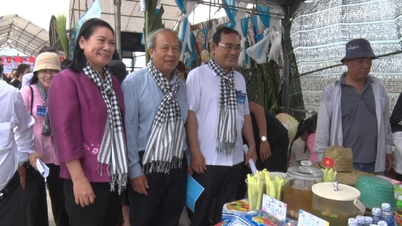






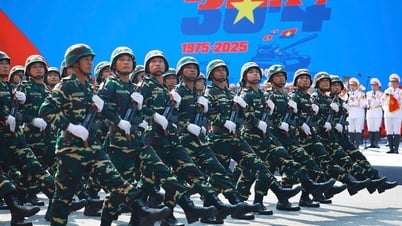



![[Photo] Feast your eyes on images of parades and marching groups seen from above](https://vphoto.vietnam.vn/thumb/1200x675/vietnam/resource/IMAGE/2025/4/30/3525302266124e69819126aa93c41092)













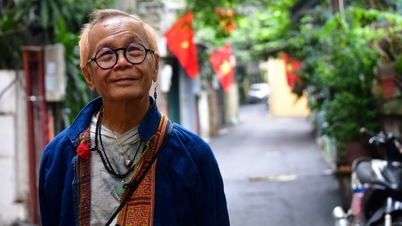






















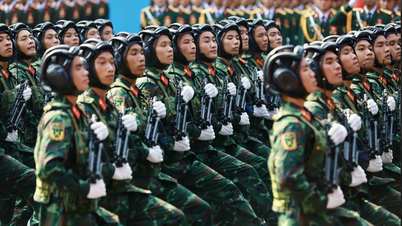












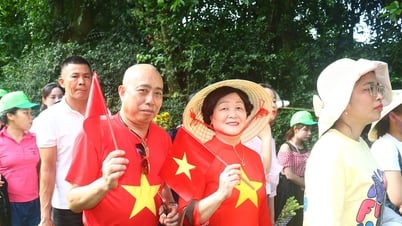






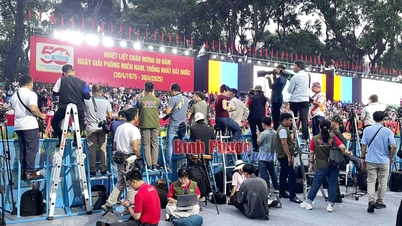















Comment (0)